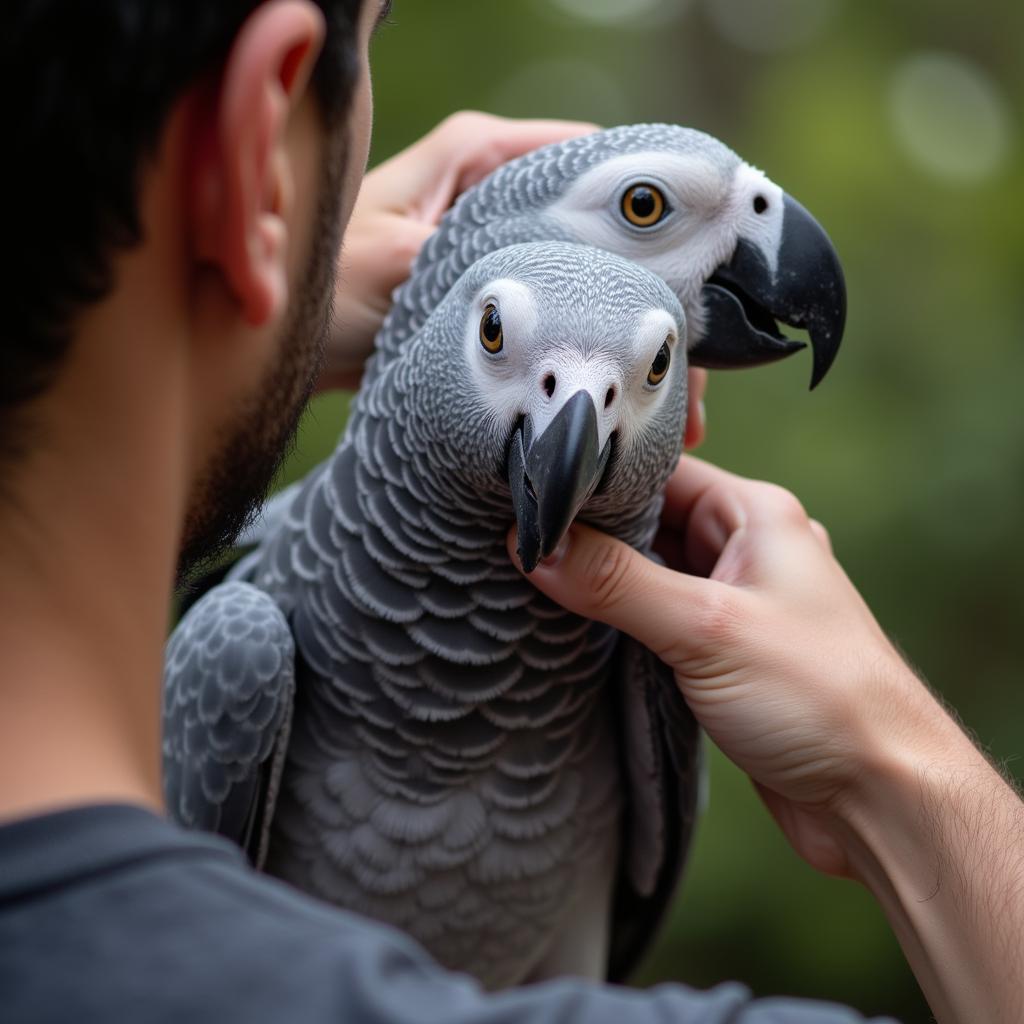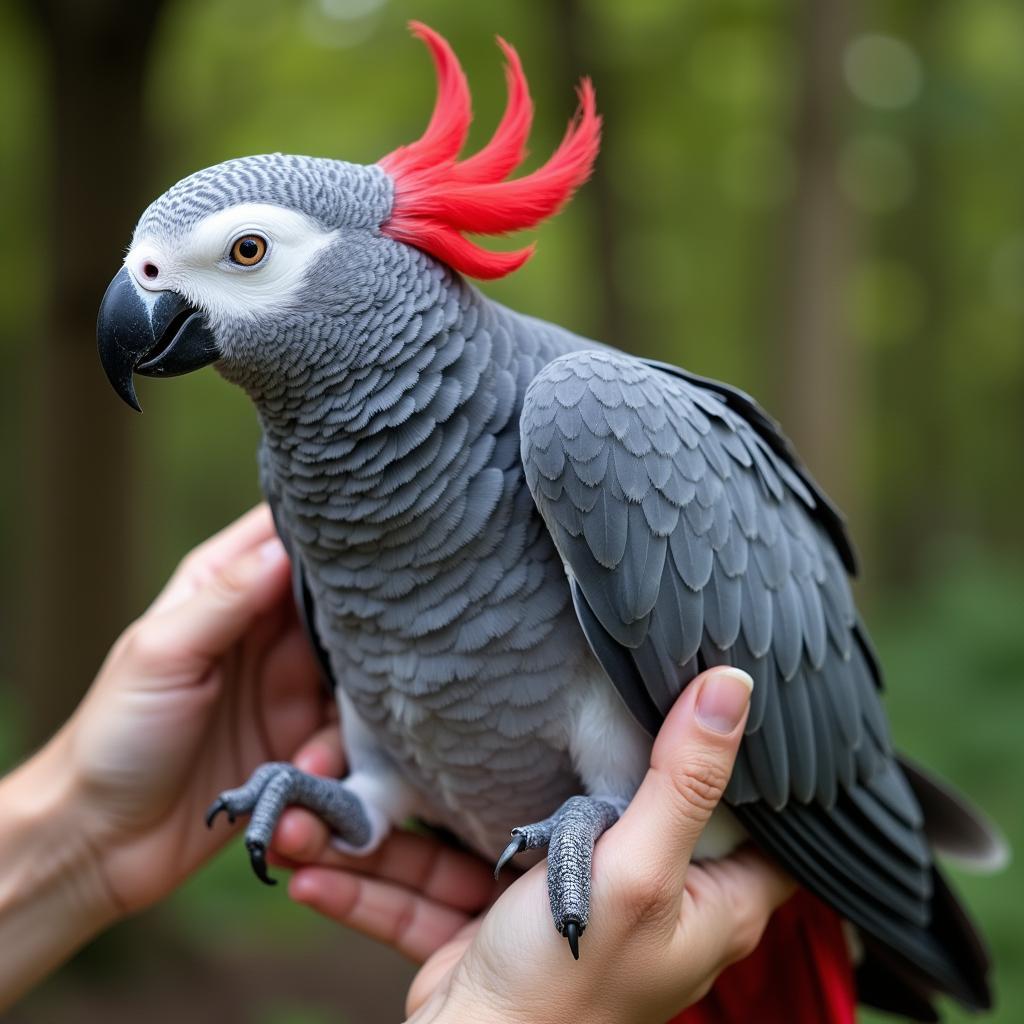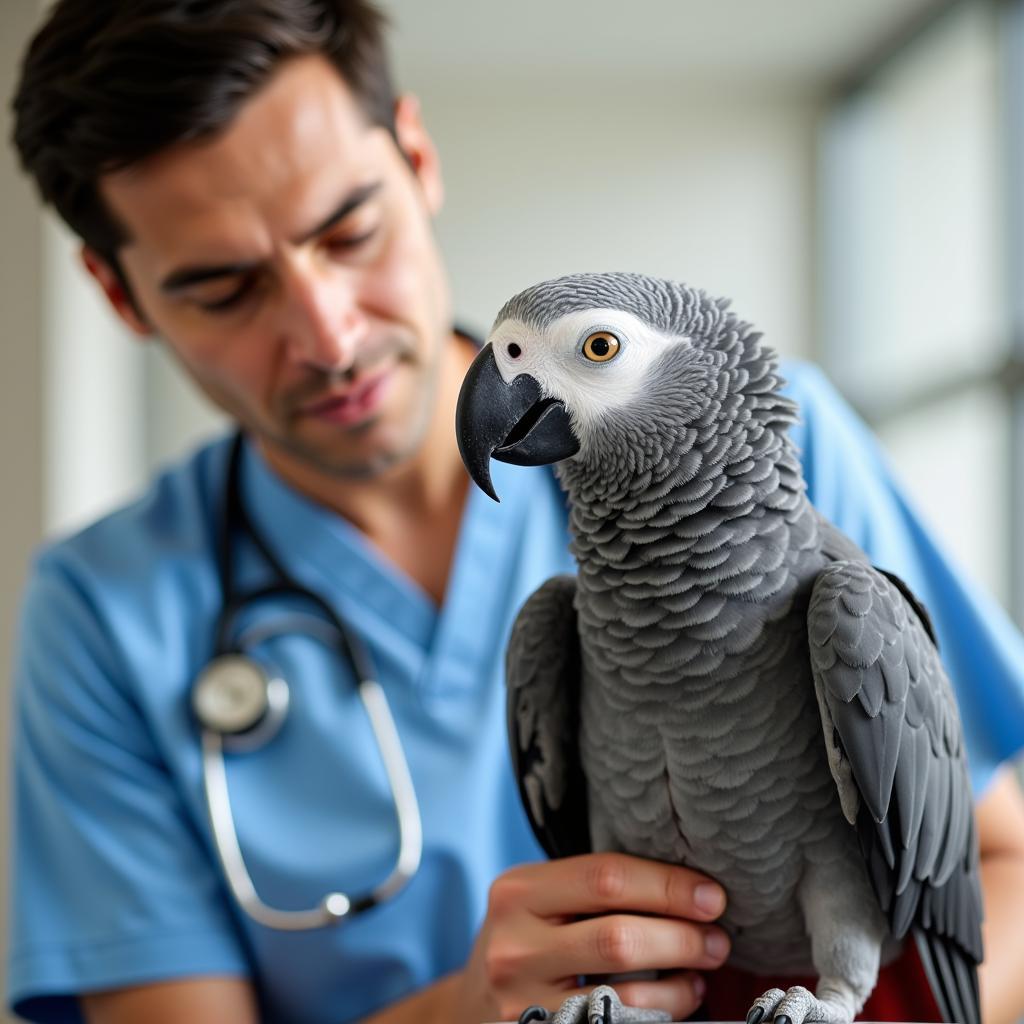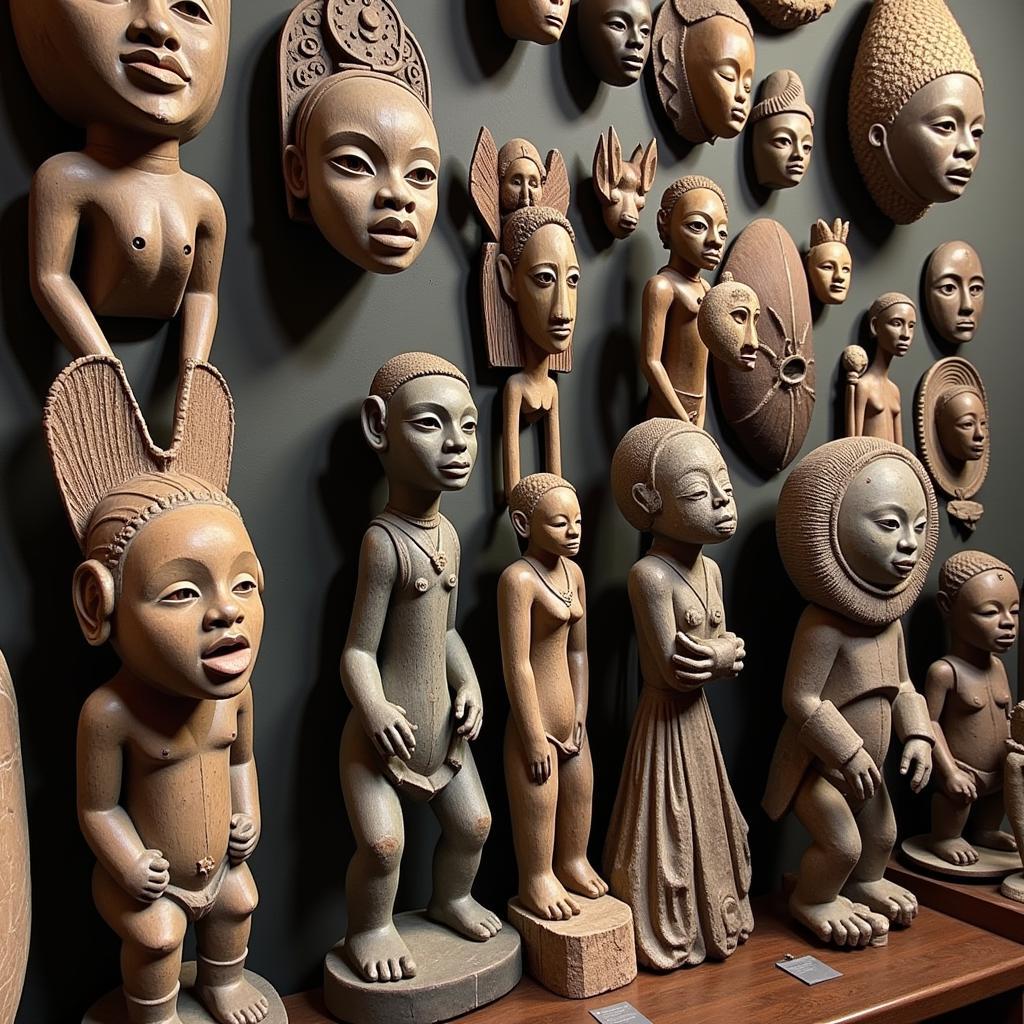Understanding African Grey Hormonal Behavior
African grey parrots, renowned for their intelligence and ability to mimic human speech, are fascinating creatures with complex emotional lives. Like many other parrot species, they experience hormonal fluctuations that can significantly influence their behavior. Understanding these hormonal shifts is crucial for any African grey owner to ensure a happy and healthy relationship with their feathered companion.
Hormonal Changes: A Natural Part of an African Grey’s Life
Just like humans, African greys undergo hormonal changes throughout their lives, particularly during adolescence and the breeding season. These changes are driven by various factors, including daylight hours, diet, and social interactions. It’s important to remember that hormonal behavior is completely natural and doesn’t signify any health issues. However, it’s equally important to recognize the signs and know how to manage them effectively.
 An African Grey parrot showing affection to its owner.
An African Grey parrot showing affection to its owner.
Common Signs of Hormonal Behavior in African Greys
Hormonal fluctuations can manifest in a variety of ways, and every parrot is unique in its response. Some common signs of hormonal behavior in African greys include:
- Increased Vocalization: Your usually quiet parrot might become notably chattier, even mimicking sounds they haven’t before. They may also display louder, more demanding calls for attention.
- Aggression: Some African greys, particularly males, might exhibit territorial behavior, becoming more possessive of their cage, toys, or even their favorite person.
- Nesting Behavior: You might notice your parrot shredding paper, trying to squeeze into tight spaces, or becoming overly protective of a particular toy or area in their cage.
- Increased Affection: On the other hand, some African greys become exceptionally affectionate during hormonal surges, wanting constant cuddles and preening.
Navigating the Challenges of Hormonal Behavior
 An African Grey parrot exhibiting feather plucking as a sign of hormonal stress.
An African Grey parrot exhibiting feather plucking as a sign of hormonal stress.
While hormonal behavior is natural, it can sometimes lead to challenges, particularly aggressive behavior or feather plucking. Here are some effective strategies to manage these situations:
- Provide Ample Environmental Enrichment: Ensure your African grey has a spacious cage with plenty of stimulating toys, puzzles, and opportunities for foraging. This helps redirect their energy and reduces boredom, a common trigger for hormonal behaviors.
- Adjust Diet and Light Exposure: Consult your avian veterinarian to ensure your parrot’s diet is balanced and appropriate for their hormonal stage. Additionally, regulating their sleep cycle by providing 10-12 hours of darkness can help stabilize their hormone levels.
- Respect Their Space: If your African grey becomes territorial or aggressive, it’s crucial to give them space and avoid forced interaction.
- Positive Reinforcement: Reward desired behaviors with praise, treats, and head scratches. This encourages your parrot to engage in positive actions even during hormonal fluctuations.
When to Seek Professional Help
If your African grey’s hormonal behavior becomes extreme, persists for extended periods, or significantly impacts their well-being, consult an avian veterinarian experienced in parrot behavior. They can offer personalized advice, address any underlying medical conditions, and provide guidance on behavioral modification techniques.
Understanding Fosters a Stronger Bond
 A veterinarian examining an African Grey parrot for hormonal issues
A veterinarian examining an African Grey parrot for hormonal issues
Navigating the complexities of African Grey Hormonal Behavior can be challenging, but it’s an essential aspect of responsible parrot ownership. By understanding the triggers, recognizing the signs, and employing appropriate management strategies, you can foster a harmonious and loving relationship with your intelligent and sensitive feathered companion. Remember, patience, empathy, and a commitment to your parrot’s well-being are key to navigating these natural phases in their lives.
FAQs about African Grey Hormonal Behavior
1. At what age do African greys start exhibiting hormonal behavior?
African greys typically reach sexual maturity between 3-5 years of age. This is when you’ll likely start noticing changes in their behavior due to hormonal fluctuations.
2. How long does an African grey’s hormonal phase last?
The duration and intensity of hormonal phases vary between individual birds. Some may experience heightened hormonal activity for a few weeks, while others might exhibit changes for several months.
3. Can I prevent my African grey from experiencing hormonal behavior?
Hormonal changes are a natural part of an African grey’s life cycle and cannot be completely prevented. However, providing a stable environment, a balanced diet, and adequate enrichment can help minimize extreme behavioral shifts.
4. Is feather plucking always a sign of hormonal issues in African greys?
While hormonal fluctuations can contribute to feather plucking, it’s not always the sole cause. Stress, boredom, dietary deficiencies, and medical conditions can also trigger this behavior. Consulting an avian vet is crucial to rule out any underlying issues.
5. Can spaying or neutering my African grey help with hormonal behavior?
While spaying or neutering can reduce hormonal behaviors in some cases, it’s a complex decision that should be made in consultation with an avian veterinarian after considering the potential risks and benefits for your specific bird.
Need More Information?
For more insightful articles on African grey care, including topics like African Grey plucking collar, African Grey parrot molting season, African Grey plucking, African grey parrot socialising, and understanding why your African Grey mean, visit our website!
We’re Here to Help
Do you have further questions about your African Grey’s hormonal behavior? Don’t hesitate to contact us! Call us at +255768904061, email us at kaka.mag@gmail.com, or visit us in Mbarali DC Mawindi, Kangaga, Tanzania. We have a dedicated team available 24/7 to assist you with all your African Grey needs.



